Racing movies: Why can't directors get it right?
Le Mans ’66 tells the story of Ford versus Ferrari but it’s already clear from the reviews that a lack of authenticity will irritate racing fans
Alamy
TAKEN FROM MOTORSPORTMAGAZINE.COM, OCTOBER 2019
If there is one genre of film I dislike more than any other, more than musicals, westerns or preposterous adventures in outer space, it’s films about racing. This is not because I have no interest in racing: quite the reverse, it is because I am obsessed by racing that I am effectively impossible to please.
I mention this now because in just over a fortnight a film variously called Ford vs Ferrari or Le Mans ’66, depending on where you’re watching it, will be released and I’m already bridling at the prospect. This is, of course, completely unfair.
But it only took one read of the review in the latest issue of Motor Sport and the part where it describes a driver changing gear halfway down Mulsanne in order to be able to overtake a rival for those telltale bubbles to start appearing in my blood. It’s like those scenes in other movies we’ve all seen where a driver, pushed beyond the bounds of human endurance in his battle with the enemy decides to push the accelerator as far as it will go. Just imagine that!
I turn into a different person when I watch these films, someone I don’t much like: a person who goes looking for flaws and derives some kind of perverse pleasure in finding them. In the Hunt-Lauda flick Rush I found myself nudging my wife and saying, “I don’t remember Cadwell Park being on the 1976 Grand Prix calendar” and receiving a well-aimed and entirely deserved elbow in the ribs.
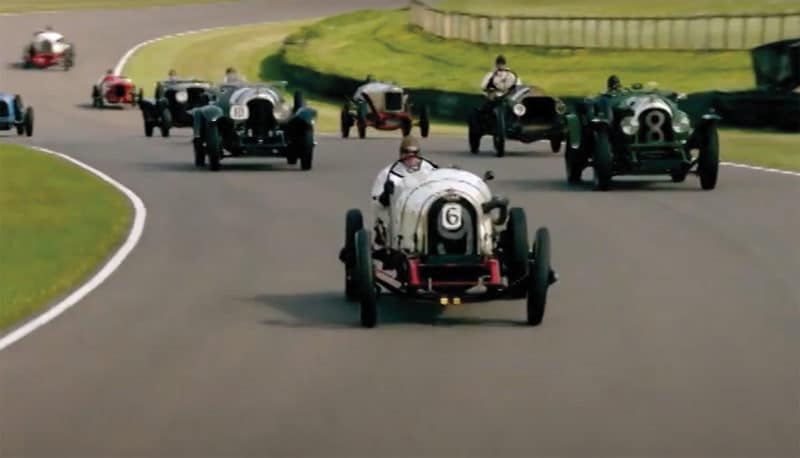
Even i is guilty of fudging scenes. However, it hardly has a core racing audience
And don’t get me started on Downton Abbey where a race at ‘Brooklands’ alternated from one sequence to the next between dog-slow tracking shots at Goodwood and a former military test track outside Chobham. Serves me right for watching Downton Abbey, I guess.
I’ve even managed to find a reason to loathe the Steve McQueen Le Mans movie, a film I’d always held up to be the best of all racing movies, a point proven in part at least by its catastrophic failure at the box office. This was a film for me, featuring proper cars being driven by proper drivers at proper speed around a proper track. But the more I found out about Steve McQueen the person, the less I wanted to watch any film in which he starred. Even if it also contained Porsche 917s.
Which means the only racing film I really enjoy watching repeatedly is John Frankenheimer’s Grand Prix. Yes, the flaws are there – Formula Juniors made up to look like F1 cars and so on – but I find myself able to look past them. It is more imaginatively shot than the McQueen movie, has some approximation of a plot (yes, it matters, even with racing movies) and gives you a racer’s eye view of some of the world’s great tracks, and not just the one presented in Le Mans.
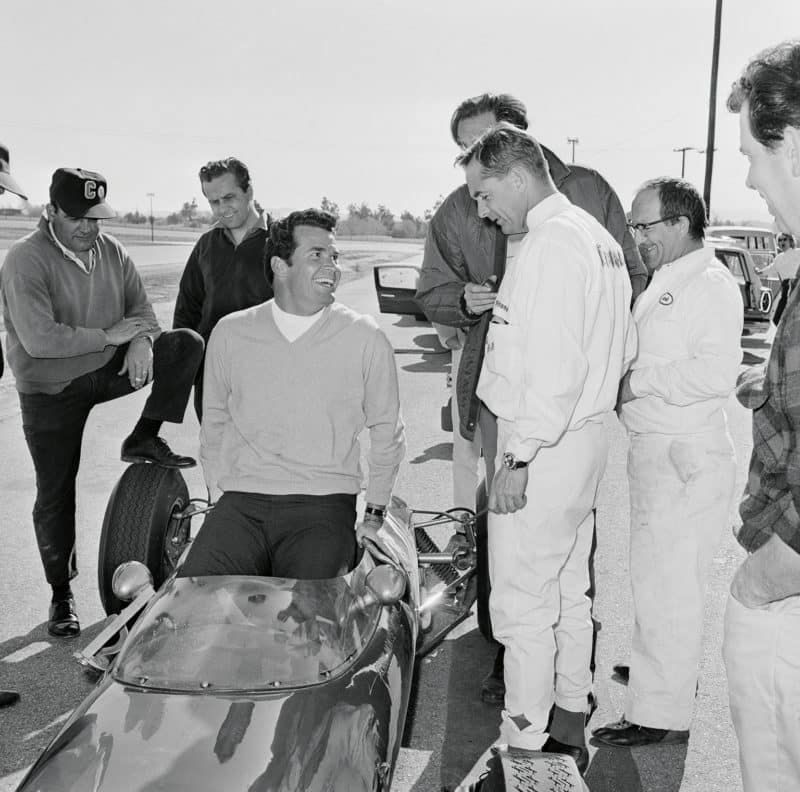
Grand Prix star James Garner slips into a Formula Junior Lotus, dressed up to look like an F1 car, as Phil Hill and director John Frankenheimer look on
Getty Images
Like McQueen, Frankenheimer shot footage from a car in an actual race, Phil Hill coming out of F1 retirement to drive a McLaren M2B for the first lap of the 1966 Belgian Grand Prix, which just happened to be one of the most eventful in F1 history with literally half the field crashing out in a sudden rainstorm. The scene of Jo Bonnier’s Cooper hanging more than halfway over a precipice, saved only by the excess weight of its Maserati V12 motor has an extra dimension because we know it is real.
I once spent a day at Monza with its star, James Garner, and a more modest, self-effacing, hopelessly smitten racing enthusiast you could never hope to meet. It was the 30th anniversary of the film’s 1967 release and some of the old cars had been gathered there for a photoshoot. Garner’s insurers had told his minders that he must not drive, first because his arteries weren’t what they were and second because he was, well, James Garner. But even minders have to go for lunch and that was all it took. The sight of Garner essentially nicking a single-seat racing car for a lap of Monza is one I’ll not forget.
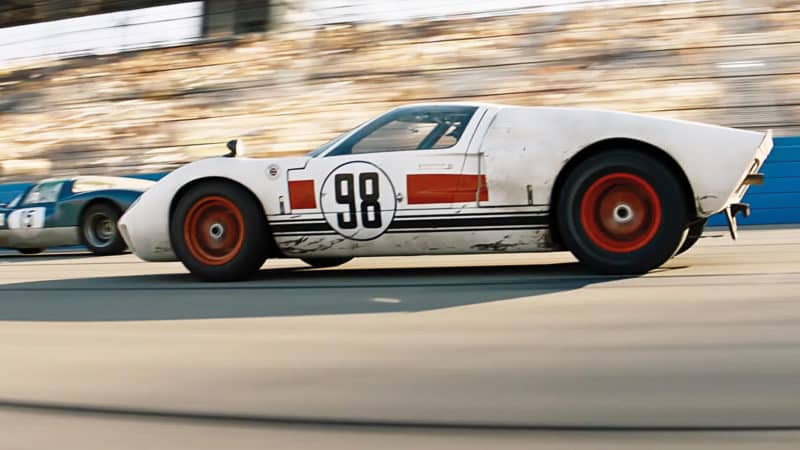
Action from Ford v Ferrari. But we suspect extra accelerator pushing and downchanges on straights may be a thing here…
Alamy
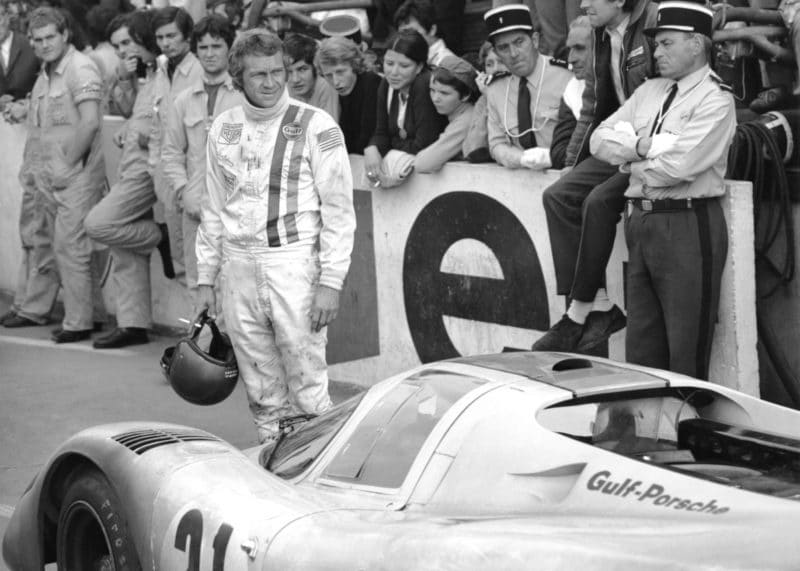
Steve McQueen’s Le Mans was a shining example for Frankel but his love has since waned
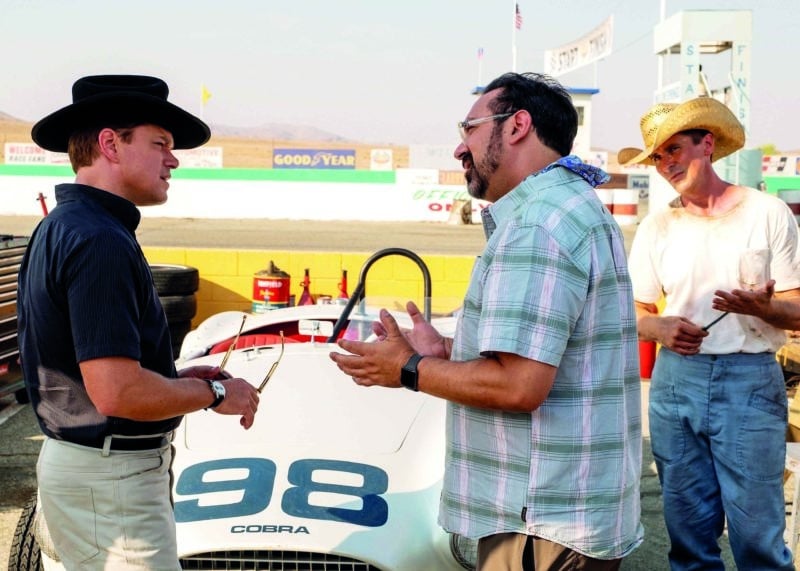
Director James Mangold with Matt Damon and Christian Bale on the set of Ford v Ferrari
And it was Garner who told me about Frankenheimer’s obsession with accuracy. Actually the director and his star didn’t get on too well – indeed Frankenheimer told Garner he wished he’d killed him off early in the film – but no one could doubt his commitment to producing an authentic product, least of all James Garner, who not only did all his own driving but also doubled for other cast members who were ultimately unable to handle a racing car.
So if they could do it in 1967, why not today? Or is it simply no-one cares enough to try?